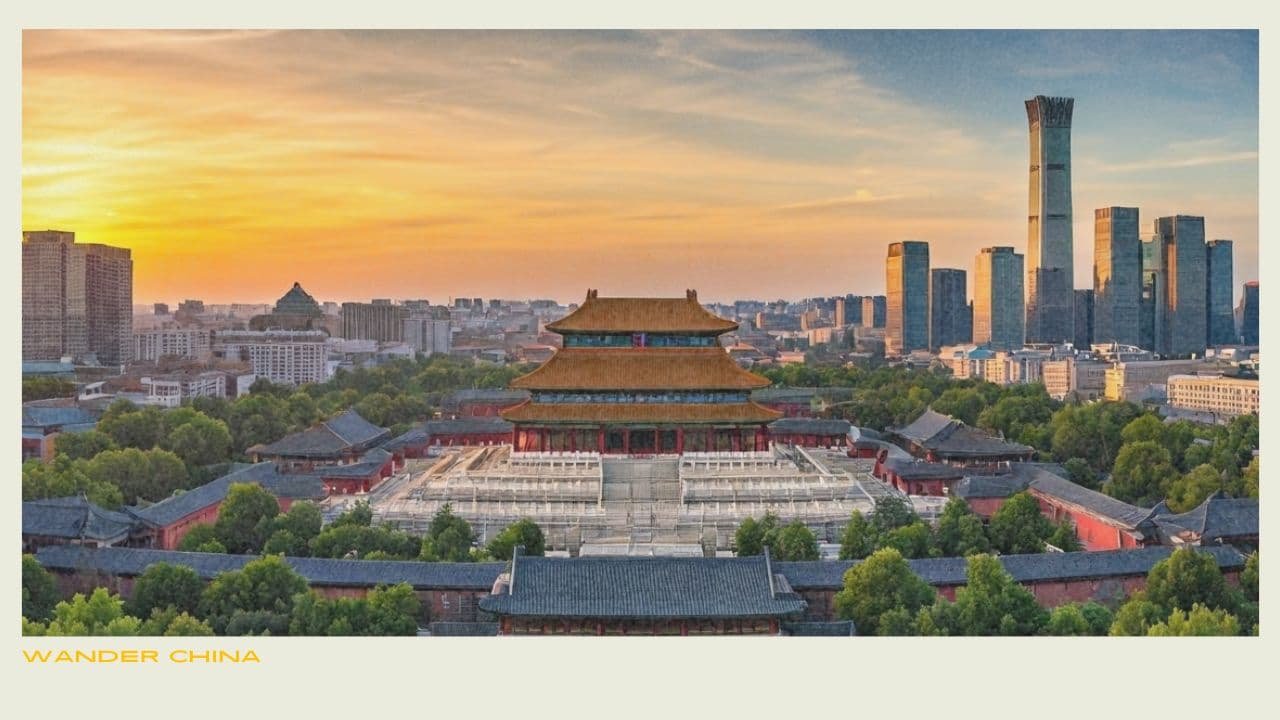Living Expenses in Beijing: 2025 Price Update
Stay updated on living expenses in Beijing with our 2025 price update.

Key Highlights
- Beijing has a lively culture, but living there can be quite expensive, especially for housing.
- In 2025, one-bedroom apartments in central Beijing range from RMB 6,000 to RMB 15,000 each month.
- You will pay more for homes in popular areas like Zhongguancun and Guomao.
- Using public transportation, especially the subway, is a cheap and effective way to get around the city.
- Dining out can fit your budget or be costly, depending on your choices, while cooking at home usually saves you money.
Moving to Beijing? It’s a busy city that has a lot of history and culture. As you prepare for this exciting new part of your life, it’s crucial to know the cost of living. This blog provides a clear update for 2025 on living expenses in Beijing. It includes details about housing, transportation, food, and leisure. Understanding these costs will help you create a good budget. You can enjoy the city without any unexpected money issues.
Understanding the Cost of Housing in Beijing
Finding a place to stay in Beijing, the capital of China, can take a lot of your budget. Prices can differ a lot. It all depends on where you are, how big the place is, and what it includes. Places in the city center are more expensive than those on the edges. Also, keep in mind that living in Beijing usually costs more than in other Chinese cities.
If you want to rent an apartment, be prepared to pay more in popular places like Chaoyang. This area has different cultures. You can also find higher prices in the busy business district of Guomao. Many websites and real estate agents can help you find a good place. Keep in mind that agent fees can be quite high, often around one month’s rent. Make sure to add this cost to your budget.
Analyzing the 2025 Market for Rentals
Beijing’s rental market in 2025 has both good and bad points for newcomers. You can find modern and clean apartments easily. But be prepared for tough competition, especially during busy periods. Unfortunately, rental prices are still quite high.
Central Beijing remains quite pricey. A one-bedroom apartment in Dongcheng, which is near historical places, will cost you around RMB 8,000 to RMB 12,000 each month. If you pick a similar apartment in Haidian, where it is closer to universities, the price could go down to between RMB 5,000 and RMB 8,000.
When you plan your budget, don’t forget to add in extra costs. This includes utilities, internet, and maintenance fees. These costs can add up quickly. They might cost you between RMB 500 and RMB 1,000 each month, depending on your usage and the size of your apartment.
The Process and Costs of Buying Property
Buying property in Beijing can be complicated. This is especially true for long-term residents and expats. Foreigners have some rules to follow. They usually need to show proof of their work or study visas to qualify. The process includes handling legal steps, getting financing if necessary, and paying taxes and fees related to the purchase.
The district has a big effect on property prices. Central areas have very high rates, often going over RMB 100,000 for each square meter. The table below shows the prices in USD for a clearer view:
| Location | Price per Square Meter (USD) |
|---|---|
| City Centre (Dongcheng) | $14,000 – $18,000 |
| Outside Centre (Haidian) | $7,000 – $12,000 |
Investing in Beijing real estate needs careful thought and solid research. It is important to talk to a trustworthy real estate agent and a legal expert before making any decisions.
Navigating Transportation Expenses in Beijing
Getting around Beijing is simple and affordable. The city offers a good public transportation system with subways, buses, and taxis. Your choice will depend on where you want to go, how much money you have, and how fast you need to be there.
Using public transport in Beijing is still pretty cheap. This is especially true when you compare it to other large cities around the world. If you travel a lot, buying a monthly travel pass can really help you save money on your rides.
Public Transport Options and Costs
In Beijing, the subway is a great option for cheap and quick travel. It keeps expanding and serves the city and the surrounding areas. A single ride costs between RMB 3 and RMB 6, based on the distance you travel.
The city has a public bus network. It offers many routes and can take you to distant places. The bus fares start at RMB 2, which is often cheaper than the subway. However, bus rides might take longer due to traffic.
Taxis are a good option if you need a direct ride. The base fare is RMB 13, and it increases based on how far you go and how long you wait. You can also use ride-hailing services like Didi Chuxing, which are popular, but they usually cost a little more.
Personal Transportation: From Bikes to Cars
For short trips or relaxing outings, there are many ways to get around in Beijing. Bike-sharing programs are quite popular. They are a green option and a good deal too. You can unlock a bike for only RMB 1 an hour using several apps.
Having a car can be nice, but it also adds extra costs in Beijing, like transportation cost. Here are some things to consider:
- Fuel Costs: Gas prices change a lot. They are now about RMB 8 to RMB 10 per liter.
- Vehicle Purchase: Importing a car has high taxes. This usually makes buying a car in the country a better option.
Driving in Beijing can be tough. There are many traffic and parking problems. If you don’t have to drive, you might find it easier to take public transport or other options.
Food and Dining: Budgeting for Eating Out vs. Cooking at Home
Food lovers, get ready! Beijing is a dream for those who love food. There are many places to eat. You can pick from delicious street food or nice restaurants. Dining out can fit your budget or feel special, depending on your choices.
You can taste local food at many small restaurants and street stalls. This lets you experience real Beijing without spending a lot. If you prefer to have international dishes at fancy places, be ready to pay more for your meal.
Average Prices in Local Markets
If you enjoy cooking your own meals, you will discover a lot of fresh fruits and local foods in Beijing’s active markets and supermarkets. These markets are full of life. Vendors sell bright fruits, fresh veggies, and tasty spices.
Prices are often low, especially for seasonal fruits and vegetables. For example, you might pay about RMB 4-8 for a kilogram of vegetables like potatoes or tomatoes. Fruits, like apples and oranges, usually cost around RMB 6-12 per kilogram.
Many supermarkets offer products from around the world. However, the prices for these imported items can be expensive. Local markets are a wonderful option. You can discover real local products and save money as you fill your pantry.
Cost Comparison: Restaurants vs. Home-Cooked Meals
In Beijing, when choosing between eating out and cooking at home, your decision often relies on your budget, taste, and available time. The city offers many tasty food options. However, cooking at home can be better for your health and help you save money.
A basic meal at a restaurant can cost between RMB 20 and RMB 50. If you prefer a nice dining experience, it might cost several hundred RMB for just one person. In contrast, cooking the same meal at home could cost you less than half of that.
It’s essential to find a good mix between tasting new foods and saving money by cooking at home. You can cut down on food expenses by planning your meals. Also, shop at local markets for fresh and inexpensive ingredients.
Is Beijing Expensive to Live In?
Beijing offers rich culture and opportunity, but it comes with premium prices—especially for rent. On average, a single person’s monthly expenses range from RMB 8,000 (modest budget) to RMB 15,000+ (comfortable lifestyle).
Quick Snapshot:
| Expense Category | Budget Range (RMB/month) |
|---|---|
| Housing (1‑bed central) | 6,000 – 15,000 |
| Utilities & Internet | 500 – 1,000 |
| Food | 1,500 – 3,000 |
| Transport | 200 – 400 |
| Leisure & Misc. | 1,000 – 2,000 |
2025 Apartment Rental Prices in Popular Districts
Beijing’s rental market is diverse. Central areas command higher rates, while suburbs offer more affordable options.
| District | Type | Rent (RMB/month) | USD Equivalent* |
| Dongcheng | 1‑bed | 8,000 – 12,000 | 1,200 – 1,800 |
| Chaoyang | 1‑bed | 9,000 – 15,000 | 1,350 – 2,250 |
| Guomao | Studio | 6,500 – 10,000 | 975 – 1,500 |
| Haidian | 1‑bed | 5,000 – 8,000 | 750 – 1,200 |
| Tongzhou | 1‑bed | 4,000 – 6,000 | 600 – 900 |
*1 USD ≈ 6.7 RMB
Real Example: Anna, a teacher from the UK, rents a 1‑bed in Haidian for RMB 6,500 and spends RMB 700 on utilities—totaling RMB 7,200 monthly.
Tip: Factor in agent fees (~one month’s rent) when budgeting.
Navigating Transportation Expenses
Public Transport: Subway & Bus
- Subway: RMB 3–6 per ride (distance‑based)
- Bus: RMB 2 flat fare
- Monthly Pass: ~RMB 200 for unlimited subway rides
Ride‑Hailing & Taxis
- Taxi Base Fare: RMB 13 + RMB 2.3/km
- Didi Chuxing: Similar to taxis, peaks during rush hour
- Tip: Download and top up your transport card for seamless travel.
Personal Options
- Bike‑Sharing: RMB 1/hour (Meituan, Mobike)
- Car Ownership: Fuel ~RMB 8–10/L; high purchase taxes; heavy traffic & parking fees
Beijing Food Costs: Street Eats to Fine Dining
Local Markets & Groceries
| Item | Price (RMB/kg) |
| Potatoes/Tomatoes | 4 – 8 |
| Apples/Oranges | 6 – 12 |
| Rice | 5 – 7 |
| Chicken | 15 – 20 |
Quote: “I shop at Sanyuanli Market for fresh produce—RMB 5/kg for tomatoes and save over RMB 300 monthly,” says Li Wei, a Beijing native.
Dining Out
| Venue Type | Cost per Meal (RMB) |
| Street Food | 10 – 20 |
| Local Cafe | 30 – 60 |
| Mid‑Range Restaurant | 80 – 150 |
| High‑End Dining | 300+ |
Money‑Saving Tip: Order à la carte at small eateries; avoid tourist hotspots.
Living Cost in Beijing for Students
A student’s annual budget (incl. dorm, meals, transport):
| Category | Annual Cost (RMB) |
| Accommodation | 20,000 – 40,000 |
| Food & Groceries | 10,000 – 15,000 |
| Transport | 2,000 – 3,000 |
| Leisure & Supplies | 5,000 – 10,000 |
| Total | 37,000 – 68,000 |
Tip: University dorms cut accommodation costs by up to 50%.
Quick Cost Calculator
Estimate your monthly budget:
- Choose district: [Central / Suburb]
- Select housing type: [Studio / 1‑Bed]
- Meal plan: [Home‑Cooked / Mixed / Dining Out]
- Transport: [Public / Ride‑Hailing]
Your estimated monthly cost: RMB X
5 Insider Tips to Save in Beijing
- Get a Yikatong Card: Save 20–40% on subway and bus fares.
- Join WeChat Groups: Find group‑buy deals on groceries and electronics.
- Use Meal‑Kits: Kits from MissFresh or Dmall reduce food waste and cost.
- Rent on Ziroom: Transparent fees & English support for expats.
- Shop Electronics during 618 Sale: Mid‑June event with 30–50% discounts.
Conclusion
Living expenses in Beijing are important for both local people and newcomers. It’s helpful to know the costs for housing, transportation, and dining out. Understanding the average cost of living can help you plan your budget better.
By looking at rental prices and property costs for 2025, along with the different costs of public and personal transport, you can make good choices. If you enjoy eating out or cooking at home, knowing the average prices can guide your decisions. Checking local markets and comparing prices can help you fit your life into your budget in Beijing. Keep an eye on utility bills, student costs, and overall living expenses to manage your money wisely.
FAQs
What are the average utility costs in Beijing for 2025?
In 2025, a regular apartment in Beijing will cost between RMB 500 and RMB 1,000 each month for basic utilities. This includes charges for electricity, water, heating, gas, and a choice for unlimited data access. The prices can vary based on the apartment size, your usage, and its energy efficiency.
As a student how much will Beijing cost for me per year?
A student budget for living in Beijing could range from RMB 60,000 to RMB 100,000 each year. This amount includes costs for housing, food, transportation, and some entertainment. However, the final total may vary a lot depending on your lifestyle choices.
Is 13000 rmb/month good enough to live in Beijing?
A monthly net salary of RMB 13,000 can allow you to live well in Beijing. You can pay for a nice place to stay, eat good meals, travel around, and have some fun. Still, it might not be enough for a very luxurious lifestyle.
How much money do you need to live in Beijing, China?
How much you need to live in Beijing as a single person depends on your lifestyle. A good monthly budget to start with, based on the cost of living index, is between RMB 8,000 and RMB 15,000.
What is the average rent in Beijing?
Average rent in Beijing varies greatly based on your location and the size of the apartment. In the city center, a one-bedroom apartment usually costs between RMB 6,000 and RMB 15,000. In the outer areas, the prices drop to between RMB 3,000 and RMB 8,000.
How much does it cost to live in China per day?
Daily living expenses in Beijing can range from RMB 200 to RMB 500 each day. This really depends on your spending habits. This amount includes costs for things like accommodation, food like cappuccino, transportation, and a little bit of entertainment.
Recent Posts
- Top Guangzhou Watch Markets to Visit in 2025: The Ultimate Insider’s Guide
- My Guide to the Best Home Appliance Markets in Guangzhou
- Guangzhou Garment Wholesale Markets: My Local Guide
- Best Hotel in Guangzhou: A Comprehensive Guide for Foreign Travelers
- Guangzhou Food Guide: Must-Try Dishes & Top Restaurants (2025 Edition)
Recent Comments
Top Guangzhou Watch Markets to Visit in 2025: The Ultimate Insider’s Guide
I visited the top watch markets in Guangzhou to show you where...
My Guide to the Best Home Appliance Markets in Guangzhou
Explore top offline home appliance markets in Guangzhou with local tips, Chinese...
Best Hotel in Guangzhou: A Comprehensive Guide for Foreign Travelers
Find the best hotels in Guangzhou—from luxury icons to local favorites. Updated...
Guangzhou Food Guide: Must-Try Dishes & Top Restaurants (2025 Edition)
I’m an expat in Guangzhou sharing the best local dishes, top restaurants...







Leave a comment